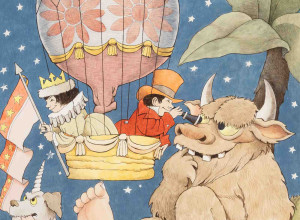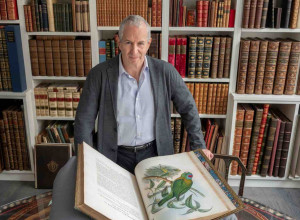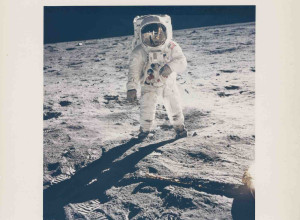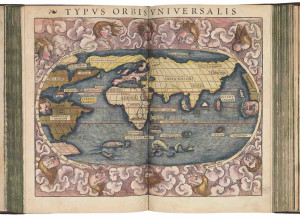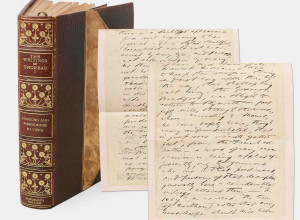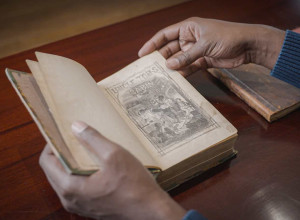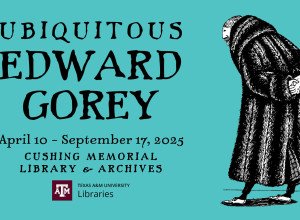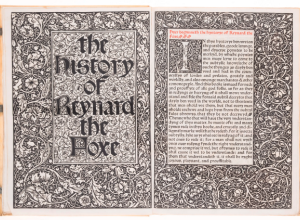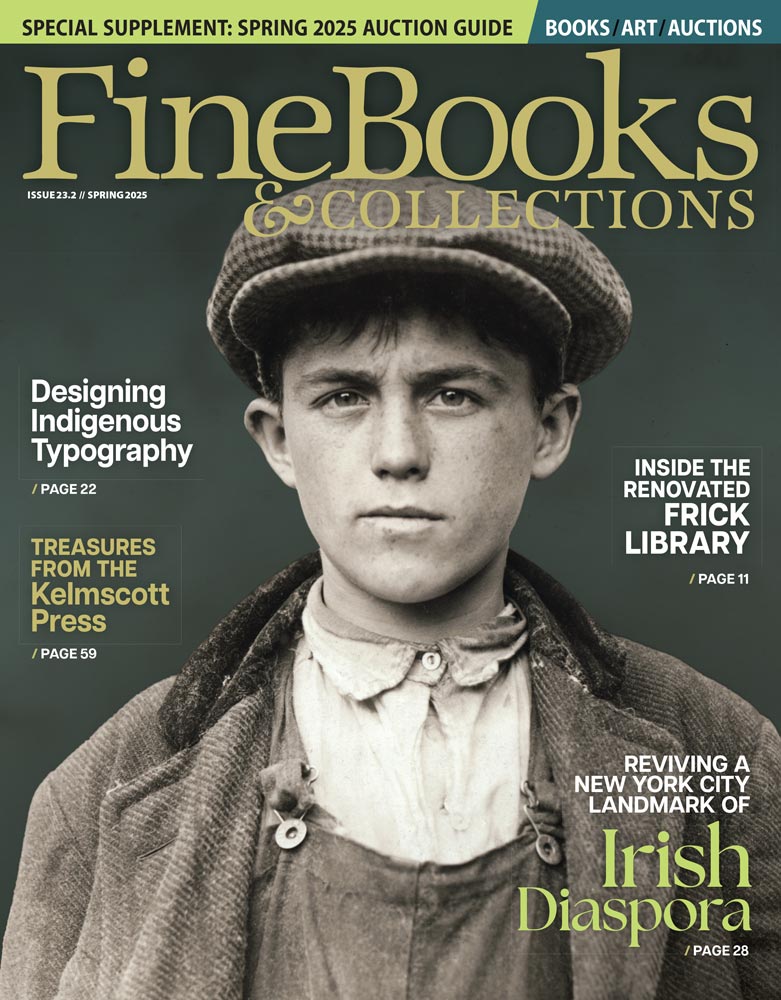Bright Young Collectors: Wilder Wohns
Our Bright Young Collectors series continues today with Wilder Wohns, who collects exploration and mountaineering in Asia:
Where are you from / where do you live?
I grew up in Tacoma, Washington, and then lived in Cambridge, Massachusetts for four years during my undergraduate program at Harvard. Following graduation last spring, I now live and study in the "other" Cambridge (in the UK). I will be moving again to Oxford next year, where I will study as a Rhodes Scholar.
What do you study at University?
At Harvard, I majored in Human Evolutionary Biology with a minor in Computer Science. At the University of Cambridge, I am studying genetics as an MPhil student in Biological Anthropology. My dissertation focuses on the use of ancient DNA to study the people of medieval Cambridge, with special emphasis on better understanding the Black Death.
Please introduce us to your book collection.
I've always been fascinated by remote places and particularly by the vast landscapes of Asia. My collection is mostly comprised of works on exploration and mountaineering in Asia, specifically in Siberia, Central Asia, the Himalayas, and Japan. I also have a collection of maps of these areas. Most of the books are from the 19th or early 20th centuries.
How many books are in your collection?
There are approximately 50 books and 10 maps in my collection.
What was the first book you bought for your collection?
The first book in my collection is a work called War Between Russia and Japan by Murat Halstead. This book is an account of the Russo-Japanese war of 1904-1905 by an American war correspondent. The work draws together many of the themes that interest me: interaction and conflict between cultures, the setting of Siberia, the Russian Far East, and Manchuria, and Japan's evolving relationship with Asia and the West. The war was significant for many reasons, but particularly because it was the first time an Asian nation had defeated a major European empire. Halstead's prejudices against the Japanese are evident in the text, so it is fascinating to examine how he responded to Japan's victory.
How about the most recent book?
I most recently acquired an early edition of Through Siberia: The Land of the Future by Fridtjof Nansen. Nansen is a personal hero of mine: he was successful as an explorer, a humanitarian, and a scientist - he was even awarded the Nobel Peace Prize in 1922 for his humanitarian efforts. In this work, he recounts his attempts to find a trade route from the Arctic Ocean to the interior of Siberia. He embarked on a journey by sea and land across the vast expanses of Russia, recounting his experiences, the land he traversed, and the peoples he met, in fascinating detail.
And your favorite book in your collection?
My favorite book in my collection is Blank on the Map by Eric Shipton. Alongside Bill Tilman, Shipton pioneered the "fast and light" approach to mountain travel in a time when mountaineering expeditions were run in the fashion of military campaigns. Shipton's compact team traveled into extremely remote and difficult terrain in the Karakoram Mountains and mapped huge areas that were previously "Blank on the Map." The work is a classic of the mountain travel genre and Shipton's accounts are eminently readable. I love hiking and climbing in a fast and light fashion, so Shipton's passion resonates with me.
Best bargain you've found?
The best bargains I've found were at a flea market in Paris. I found Russian first editions concerning exploration in Siberia and Central Asia before the Bolshevik Revolution. Each book was only a few Euros!
How about The One that Got Away?
I was enthralled by a 100-year-old Japanese atlas in a secondhand book store in Kanazawa, Japan. I decided to think it over for a day, but when I returned it had already been sold.
What would be the Holy Grail for your collection?
There are many books I would love to have in my collection, but I have long been intrigued by the story of Ekai Kawaguchi, the first Japanese person to enter Tibet. Kawaguchi was a Buddhist monk who wanted to study Tibetan Buddhism in a time when Tibet was closed off to foreigners. I have been eagerly examining first editions of his book Three Years in Tibet. This book excites me because the story of exploration in Asia (and my collection) is dominated by Europeans, so I would greatly appreciate the perspective of a Japanese explorer.
Who is your favorite bookseller / bookstore?
My favorite bookstore is Henry Sotheran's in London. The store has deeply knowledgeable staff who are always eager to help those who share a passion for antiquarian books and the incredible stories they contain.
What would you collect if you didn't collect books?
I would collect Japanese woodblock prints. They are beautiful - strikingly rich in color and detail. Whether they depict sublime scenes from another age or historically significant battles and individuals, Japanese woodblock prints are endlessly fascinating.
Image Courtesy of Wilder Wohns.






